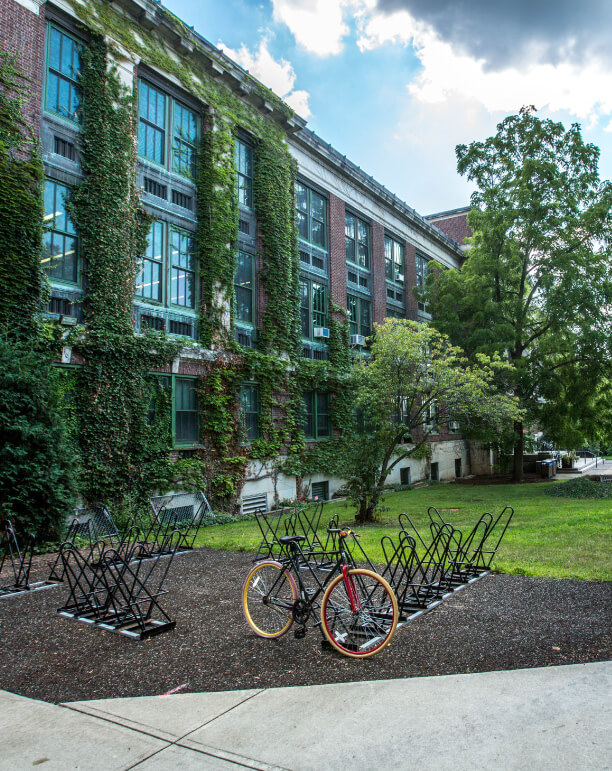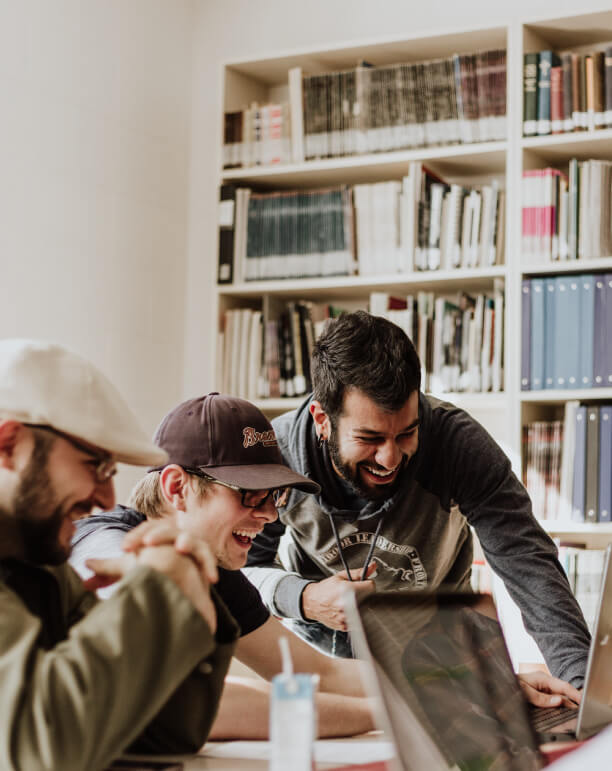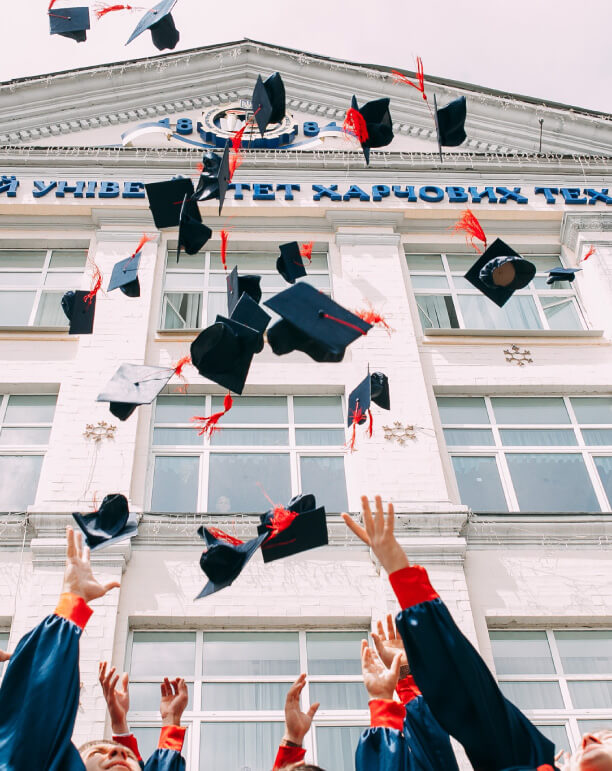Dean
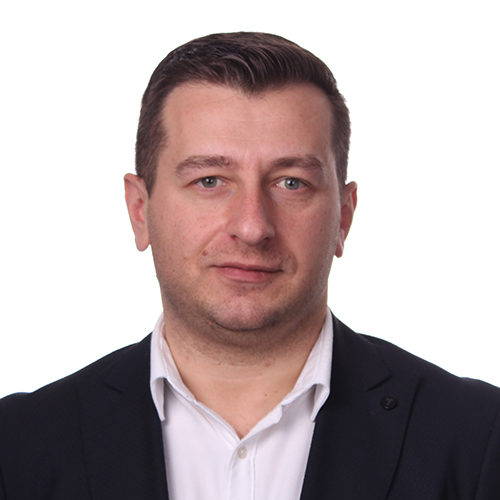
Gazmend Abrashi
Dean
Prof. Ass. Dr. Gazmend Abrashi is widely recognized for his dedication as a professor specializing in mass communication and journalism, with a research focus on internal organizational communications. He earned both his bachelor’s and master’s degrees in Mass Communication and Journalism from AAB College, followed by a doctorate in Communication Sciences and Journalism from the University of Pristina. Since 2019, he has been actively involved with the Faculty of Mass Communication and Journalism at AAB College, serving in key roles such as vice-dean and teaching coordinator. As of May 2024, he has taken on the role of Dean.
Professional experience and qualifications:
- Dean of the Faculty of Mass Communication and Journalism – May 2024 – present
- Coordinator for Teaching at the Faculty of Mass Communication – 01.10.2023 – 01.05.2024
- Vice-Dean at the Faculty of Mass Communication – 30.10.2020 – 01.10.2023
- Academic appointment, Prof.Asst.dr. – 2020
- Professor at the Faculty of Mass Communication – 01.10.2019 – present
Education:
- Doctor of Communication and Journalism, Faculty of Philology, University of Prishtina, (2013–2019). Dissertation titled: “Experiences of organizational communication in local and international business organizations”
- Master of Science in Mass Communication and Journalism, Faculty of Mass Communication and Journalism, AAB College (2008–2013). Dissertation titled: “Organizational Communication”
- Bachelor of Mass Communication, Faculty of Mass Communication and Journalism, AAB College, (2004–2007)
Conferences:
- “Media Ethics and AI-Generated Images”, International conference: Artificial Intelligence (AI) in the Age of Transformation: Opportunities and Challenges, AAB College, (13.05.2025).
- “Online Media Reporting on Covid 19 in Kosovo”, Virtual International Academic Conference, Transformations and Consequences in Society Due to Covid-19 Pandemic. AAB College, (05.09.2020–06.09.2020).
Publications:
- Abrashi, G. & Reçi, A. (2023). Motivation of employees in the public sector through organizational communication case study: vala mobile company, Kosovo. Human Research in Rehabilitation, 13(2): 321–332. Doi: https://human.ba/wpdm-package/full-text-273/?wpdmdl=2023&refresh=66222e2241eea1713516066
- SALIU, H., REÇI, A. & ABRASHI, G. (2023). Revisiting Hallin and Mancini’s media model: Albania and Kosovo. Balkan Social Science Review, Vol. 21 No. 21, 235–255. Doi: https://js.ugd.edu.mk/index.php/BSSR/article/view/5851
- Saliu, H. & Abrashi, G. (2023). The Return of Media Diplomacy, Examples from Kosovo. Jurnal Ilmu Sosial dan Ilmu Politik, 27(1). Doi: https://doi.org/10.22146/jsp.73710
- Sallauka, G. (2022). Use of Information Technology in Academic Library Practice. International Information & Library Review, Volume 54, Issue 4, 380–386. Doi: https://doi.org/10.1080/10572317.2022.2124834
- Abrashi, G. (2018). Communication experiences in business organizations (Business Organizations in Kosovo). Acta Universitatis Danubius. Communicatio, Vol. 12, No. 2/2018, 34–44. Doi: http://journals.univ-danubius.ro/index.php/communicatio/article/view/5162
- Abrashi, G. (2018). Organizational communication – the importance of communication strategy in times of crisis for the organization. European Journal of Social Sciences, Volume 1, Issue 2, 21–25. Doi: http://journals.euser.org/files/articles/ejss_v1_i2_18/Gazmend.pdf
- Abrashi, G. (2018). Organizational communication – communication process in business organizations. Second International Scientific Conference EMAN 2018, ISBN 978-86-80194-11-0, pp. 425–428. Doi: https://www.researchgate.net/…/Simulation.pdf#page=451
- Abrashi, G. (2015). Social Status and Public Spaces. Academic Journal of Interdisciplinary Studies, Vol. 4 No. 3 S1, 426–429. Doi: http://www.mcser.org/journal/index.php/ajis/article/viewFile/8412/8074
- Doko, M. & Abrashi, G. (2014). Televizioni dhe ekranizimi i veprës letrare për televizion. Revista Ndërkombëtare “Thesis Kosova”, UAAB, 2014. Doi: https://aab-edu.net/documents/thesis/nr-02-2014/televizioni-dhe-ekranizimi-vepres-letrare-per-televizion/
- +383 38 600 005
- [email protected]
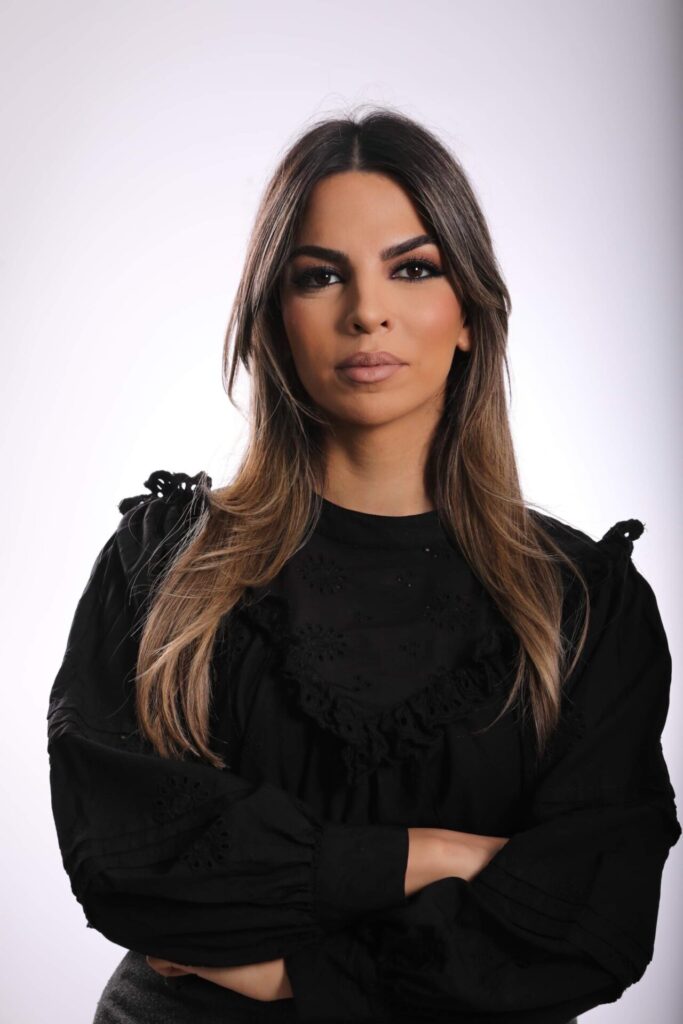
Eriona Ajvazi
Lecturer and Quality Assurance Coordinator
Eriona Ajvazi was born in Prishtina, Kosovo. She completed her Bachelor’s and Master’s studies in English Language and Literature at AAB College in 2018 and 2021, respectively. Between February and July 2017, she participated in an academic exchange program through Erasmus+ at the University of Łódź in Poland , within the Faculty of Philology.
She is currently a PhD candidate at the Faculty of Humanities at the University of Graz (Austria) , focusing on Critical Discourse Analysis in English related to the Kosovo–Serbia Dialogue. Since 2019, her activities have included representation at the European Y-FED Model in Strasbourg, training and certification in digital marketing and SEO, presentations at international conferences on linguistics, education, and human rights, as well as numerous Erasmus+ trainings in countries such as France, the Netherlands, Austria, North Macedonia, Bosnia and Herzegovina, Albania, and Slovakia.
In 2025, she participated in interdisciplinary PhD workshops and seminars in Italy, Croatia, Austria, and Albania, focusing on linguistics, research methods, area studies, human rights, and sustainable education. These experiences have significantly enriched her academic and professional development, providing her with in-depth knowledge, international networking opportunities, and new interdisciplinary perspectives.
Since 2016, she has been part of the staff at AAB College as a translator, and since 2021, she has also been a lecturer in the Faculty of English Language. In parallel, since 2023, she has held the position of Quality Assurance Coordinator. She has also served as Deputy Curator at Global Shapers Prishtina (2020–2021) and as Public Relations Officer at the International Theatre Festival in Prishtina (2017–2019). She has worked as a translator in various contexts including KFOR, trainings, lectures, and camps.
Eriona Ajvazi has been actively involved in international academic and professional programs such as Erasmus+, workshops, conferences, and seminars across various countries including Austria, the Netherlands, France, Croatia, Italy, North Macedonia, Albania, Bosnia, and more.
She holds certifications in research methodology, human rights, higher education for adults, and competency-based assessment.
She possesses advanced knowledge of English and intermediate proficiency in German and Spanish.
She is an active member of the Western Balkans Alumni Association and has previously been involved with youth and civic organizations such as JEF Kosova and Global Shapers Prishtina, where she contributed to the promotion of democratic values and youth participation in decision-making. In terms of projects, she currently serves as a member of the Advisory Group of the ReLOaD3 project in Kosovo, supported by UNDP, which aims to strengthen local democracy in the Western Balkans. In 2020, she managed the project for Kosovo’s accession to CERN and was involved in the “Unconditional Basic Income” project, contributing to the promotion of innovative policies for social welfare and scientific development.
Her academic interests lie in interdisciplinary fields primarily related to linguistics, critical discourse analysis, linguistic landscapes, and sociolinguistics, with a particular focus on how language shapes identity, ideology, and power relations in political and social contexts.
She is recognized for her commitment to academic quality, continuous professional development, and for linking education with democratic processes, youth engagement, and sustainable development at the regional and European level.
- +383 38 600 005
- [email protected]


